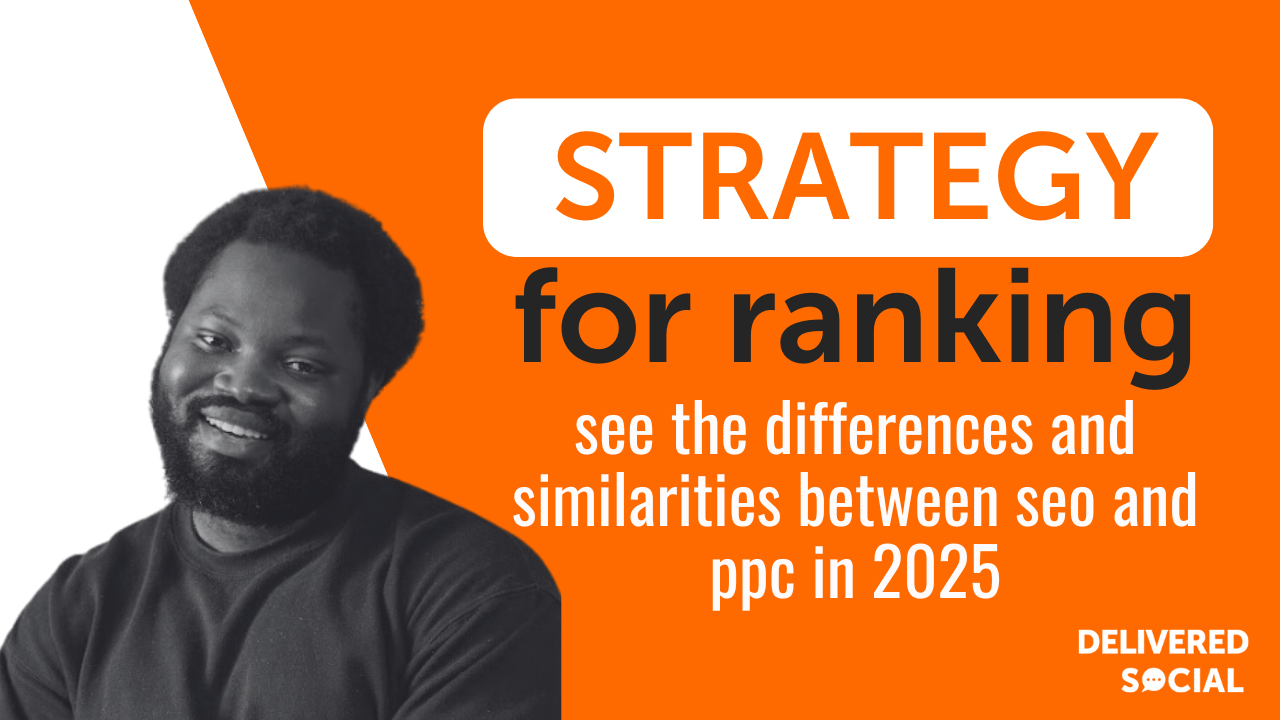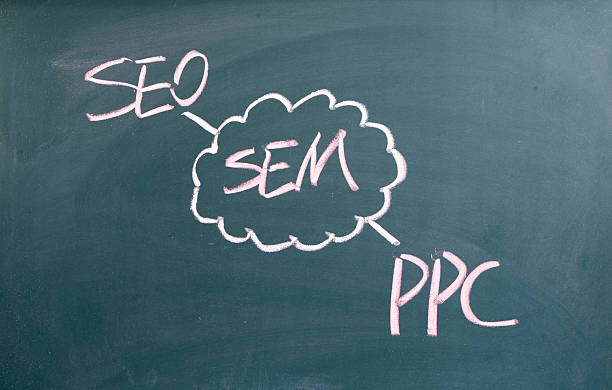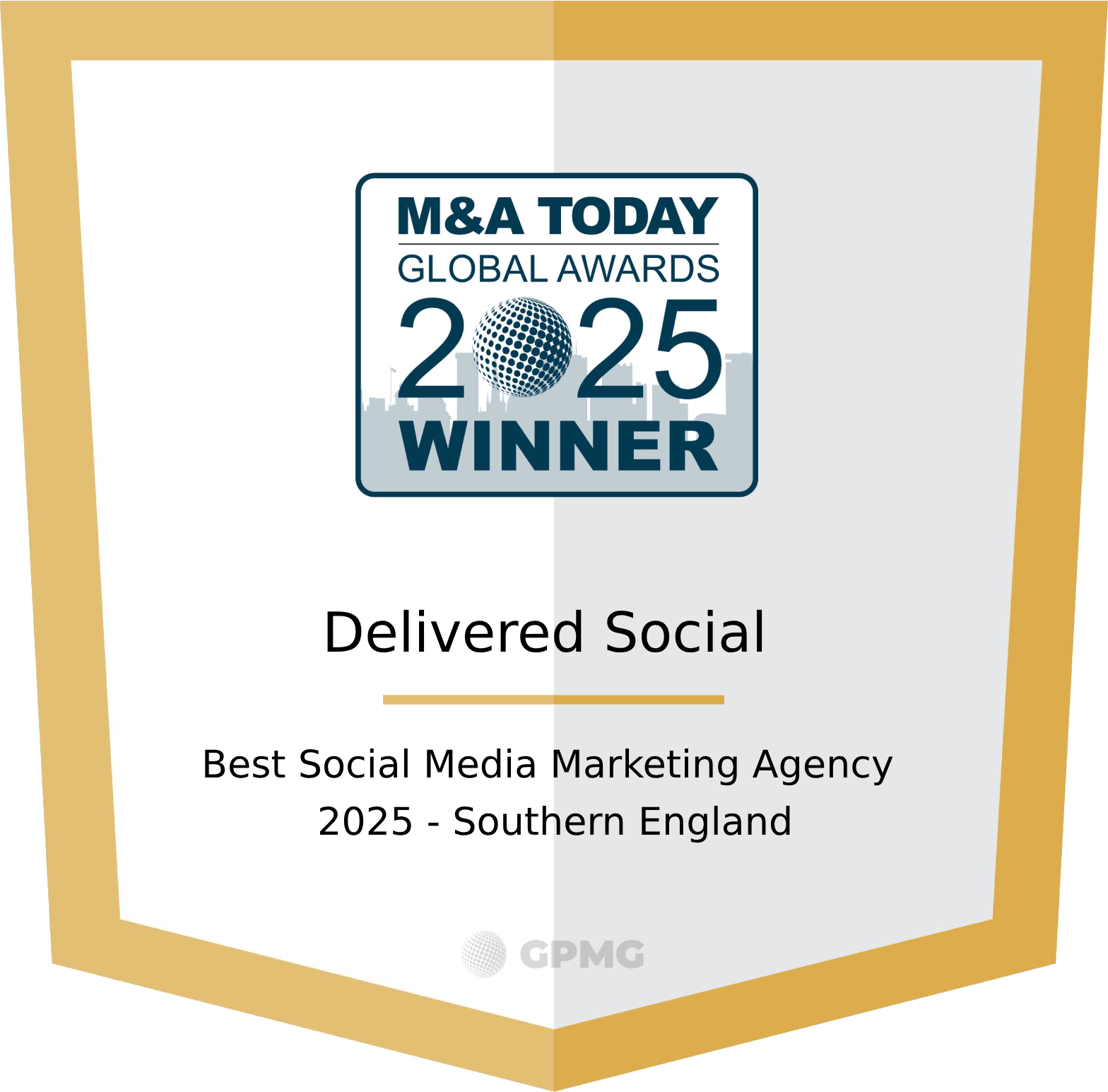
As we move further into 2025, the digital marketing landscape continues to shock us in the marketing world and dole out surprises every new week, bringing new challenges and opportunities. Two of the most powerful tools at your disposal are Search Engine Optimisation (SEO) and Pay-Per-Click advertising (PPC). Both strategies aim to increase visibility on search engines and drive traffic to your website, but they do so in very different ways. This article explores SEO and PPC in 2025, highlighting how each strategy works and how they can be used together to enhance your digital marketing efforts.
SEO is all about optimising your website to appear higher in organic search results. It involves tweaking various elements of your site, such as content, structure, and user experience, to make it more attractive to search engines like Google. The key to successful SEO is understanding what your potential customers are searching for and ensuring your site meets their needs as well as the criteria set by search engines.
On the other hand, PPC is a model of internet marketing where advertisers pay a fee each time one of their ads is clicked. Essentially, it’s a way of buying visits to your site, rather than attempting to “earn” those visits organically. PPC allows for immediate exposure and can be an effective way to draw attention to specific promotions or offers quickly. PPC can also boost your SEO!
While SEO often requires time and patience to see results, PPC can provide an immediate boost in traffic. However, both strategies require ongoing attention and adaptation to remain effective, especially as search engine algorithms and user behaviours continue to change!
How SEO Works In 2025
SEO works by optimising a website’s content, conducting keyword research, and earning inbound links to increase that content’s ranking and the website’s visibility. In 2025, SEO remains a fundamental pillar of digital marketing, tailored to align with the latest search engine algorithms and user expectations. The essence of SEO is enhancing both the quality and visibility of your website in organic search results. This involves a multifaceted approach, focusing on various elements such as content quality, keyword optimisation, user experience (UX), and technical website performance.
Content is King: And the adage still holds true in 2025. Search engines continue to prioritize websites that deliver valuable, relevant, and regularly updated content. To stand out, your focus should be on creating informative, engaging posts written in good English that directly address your audience’s questions and needs. Keywords play a crucial role here—not just any keywords, but those that are highly relevant to your target audience’s search intent. Whether you’re promoting a product, a blog, or even an English learning app, quality content paired with smart keyword usage can significantly boost your visibility online.
User Experience (UX): SEO in 2025 places a strong emphasis on UX. A seamless, intuitive user interface that works flawlessly across all devices, especially mobiles, is crucial. Google’s mobile-first indexing means your site must be optimised for mobile users first and foremost. This includes fast loading times, easy navigation, and accessible design.
Technical SEO: Behind every successful SEO strategy lies robust technical groundwork. This includes structured data, clean code, secure connections (HTTPS), and fast loading speeds. Technical SEO ensures that search engines can crawl and index your website efficiently, which is vital for improving your rankings.
Link Building: Building high-quality backlinks from reputable sites continues to be a significant ranking factor in 2025. Links are like votes of confidence from other websites, indicating to search engines that your content is valuable and trustworthy. One increasingly popular link building method is niche edits, where links are placed naturally within existing, relevant content on authoritative websites. Niche edits provide a powerful and efficient way to earn contextual backlinks without needing entirely new articles written.
Local SEO: For businesses targeting local customers, local SEO is more important than ever. Ensuring your business is listed accurately on Google Maps, integrating local keywords, and optimising your Google My Business page are key strategies to attract local traffic.
To summarise, here are some is a step by step approach you can adopt for SEO in 2025:
- Conduct keyword research.
- Google your keywords and narrow your list.
- Create comprehensive content based on your keywords.
- Earn links to your pages.
- Improve your technical SEO.
- Elevate your page’s design and user experience (UX)
- Continually re-optimise your content.
How PPC Works In 2025
PPC advertising works by allowing advertisers to bid on specific keywords or phrases that they want their ads to appear for in search engine results. Pay-Per-Click (PPC) advertising continues to be a vital component of digital marketing strategies in 2025. This model allows businesses to advertise directly to their target audience by paying for prominent placements on search engine results pages (SERPs), social media platforms, and other digital spaces. Understanding how PPC functions can greatly enhance your ability to capture immediate traffic and complement your SEO efforts.
Targeted Advertising: One of the greatest strengths of PPC in 2025 is its ability to target advertisements with precision. Advertisers can specify not only demographic details such as age, location, and interests but also user behaviour and purchasing patterns. This level of targeting ensures that your ads are displayed to those most likely to be interested in your products or services, increasing the likelihood of conversion.
Adaptability: PPC platforms have evolved to offer remarkable adaptability in campaign management. Advertisers can quickly change their ads, test new messages, and adjust budgets based on performance data. This flexibility is crucial for adapting to market trends and optimising campaigns for better performance.
Flexibility and Speed: PPC campaigns can be launched quickly, making them ideal for promotions or responding to market changes. Unlike SEO, which can take time to reflect changes, PPC ads can be updated and adjusted in real-time. This agility allows businesses to stay competitive and responsive to consumer trends and behaviour.
Measurable Results: Another significant advantage of PPC is its traceability. With advanced analytics tools available in 2025, businesses can track the performance of their PPC campaigns in granular detail. Metrics such as click-through rates (CTR), conversion rates, and return on ad spend (ROAS) provide invaluable insights that help refine ad strategies and improve overall effectiveness.
Integration with SEO: While PPC operates through paid means, it complements organic search efforts. Insights gained from PPC campaigns, such as effective keywords and ad copy, can inform SEO strategies and content creation, creating a cohesive digital marketing approach.
To summarise, this is the step by step approach you can adopt to achieve results from PPC:
- Choose your campaign type based on your objective.
- Refine your settings and targeting (audiences, devices, locations, schedule, etc.).
- Provide your budget and bidding strategy.
- Input your destination URL
- Build your ad with Google

Key Differences Between SEO And PPC In 2025
Understanding the key differences between SEO and PPC is important for effectively deploying these strategies in your digital marketing mix and also important to know which to apply depending on the stage of your business, for example it is advisable as a starting business to invest time and energy into SEO which is a long term investment and also saves cost for the business. While both aim to increase visibility and drive traffic to your website, their approaches and impacts vary significantly. Here are the main distinctions you should be aware of in 2025:
Cost Implications: SEO is often viewed as a cost-effective strategy because it does not require payment for clicks. However, it does involve investments in content creation, website optimisation, and sometimes SEO services. On the other hand, PPC requires paying directly for each click your ads receive, which can lead to faster, more predictable traffic, but at a cost.
Time to Results: SEO is a long-term strategy. The fruits of SEO efforts, such as content publication and on-page optimisation, typically take time to manifest in improved search rankings and increased organic traffic. Conversely, PPC offers immediate results. As soon as your PPC campaigns are live, they can start driving traffic. This immediacy can be particularly valuable for promotions or when launching new products.
Traffic Potential: While PPC traffic stops as soon as you pause your campaigns, the traffic from SEO efforts is more sustainable. Once you achieve high rankings through SEO, your site can continue to receive traffic over time without the ongoing costs associated with PPC.
Targeting Precision: PPC campaigns offer more precise targeting options compared to SEO. You can target specific demographics, times of day, locations, and even user behaviours. SEO, while it does involve targeting specific keywords and demographics indirectly through content, does not allow for this level of precision.
Control and Flexibility: PPC provides greater control over your marketing efforts. You can start, stop, pause, or adjust your campaigns at any time based on performance or budget considerations. SEO is less flexible, requiring long-term efforts and gradual adjustments based on search engine algorithm changes and competitive landscape shifts.
Key Similarities Between SEO And PPC In 2025
Despite their differences, SEO and PPC share several key similarities that can enhance your digital marketing strategy when leveraged together. Understanding these commonalities is essential for creating a cohesive and comprehensive approach to increasing your online visibility and driving more traffic to your website in 2025. It is very understandable that it might be quite confusing and it is almost a dilemma to choose which will be the best, but they are both good and have their similarities! However it is advisable to look at the stage of your business and this will determine what strategy to employ. Here are some of the main similarities between SEO and PPC:
Goal Alignment: Both SEO and PPC in 2025, aim to drive more traffic to your website and ultimately increase conversions. Whether through organic search results or paid ads, the end goal is to attract visitors who are interested in what you offer and convert them into customers.
Keyword Reliance: At the heart of both strategies is the use of keywords. SEO involves optimising your website’s content and meta tags with targeted keywords to improve your rankings in organic search results. Similarly, PPC campaigns require you to select relevant keywords for which your ads will appear in the paid search results. Understanding which keywords perform well can inform both your SEO and PPC efforts, leading to more effective campaigns across both channels.
Performance Analysis: Both SEO and PPC in 2025 rely heavily on data analysis to gauge success and guide strategy adjustments. Tools like Google Analytics provide insights into keyword performance, user behaviour, and conversion metrics for both organic and paid searches. By analysing this data, you can fine-tune your approaches to both SEO and PPC, optimising your overall digital marketing strategy.
Landing Page Optimisation: The landing pages used for PPC ads are also critical for organic search conversions. Both strategies benefit from well-designed landing pages that are optimised for conversions. These pages must be relevant to the keywords targeted, provide valuable content, and have clear calls-to-action (CTAs) to be effective for both paid and organic traffic.
Continuous Improvement: SEO and PPC are not set-and-forget strategies; they require ongoing optimisation and updates based on the latest search engine algorithms, user preferences, and competitive landscapes. Regularly reviewing and refining your approach to both SEO and PPC is necessary to maintain and improve their effectiveness over time.
By recognising and leveraging these similarities, businesses can create a more integrated and effective digital marketing strategy that maximises the strengths of both SEO and PPC. This holistic approach can lead to greater visibility, higher traffic, and improved conversion rates in 2025.

Enhance Your Digital Strategy With SEO And PPC In 2025
Digital marketing an marketing in 2025 has been really dynamic especially for marketers. World events, especially COVID has reshaped the consumer behaviour of online users and consumers and as marketers we have to adopt to the changing the world. In these recent times, it has become clear that both SEO and PPC hold pivotal roles in driving online success. Integrating these strategies can provide a comprehensive approach to digital marketing that leverages the strengths of each to maximise visibility, drive traffic, and increase conversions.
Utilising SEO and PPC in 2025 in tandem allows businesses to dominate both organic and paid search results, providing multiple touchpoints for potential customers. While SEO builds a strong foundation and credibility over time, PPC offers the agility to quickly capitalise on opportunities and react to market changes. This dual strategy ensures that your business remains visible in a highly competitive online environment.
Moreover, the insights gained from PPC campaigns can be invaluable for refining your SEO strategies. The performance data from PPC ads, including keyword effectiveness and consumer behaviour, can provide real-time feedback that can be used to tweak SEO efforts for better results. Conversely, the keyword and content strategies developed for SEO purposes can be used to enhance the relevance and quality of PPC ads.
Businesses looking to thrive in 2025 should consider investing in both SEO and PPC. By doing so, you can enjoy the long-term benefits of SEO along with the immediate impacts of PPC. Consulting with an experienced PPC or SEO consultant can also help you align these strategies effectively for maximum impact. If you’re ready to take your digital marketing to the next level, consider partnering with a seasoned agency that specialises in both SEO and PPC.
Interested In Working Together?
Introducing Delivered Social. We’re The Most-Rated Digital Agency In Surrey & Hampshire – We’ve Got To Be Doing Something Right.
Delivered Social is a digital marketing agency with one mission—to help businesses grow. We’re famous in Guildford and Portsmouth for our social clinics. We believe in free advice. We build lasting relationships because our team prides itself on being helpful, which our clients appreciate.
If you are looking for a new website or an agency to manage your social media presence, we can help.
If you need something slightly different, here's a super handy list of all our services, or you can always email us.



















